Home>Articles>What Do I Use To Seal Butcher Block Countertops
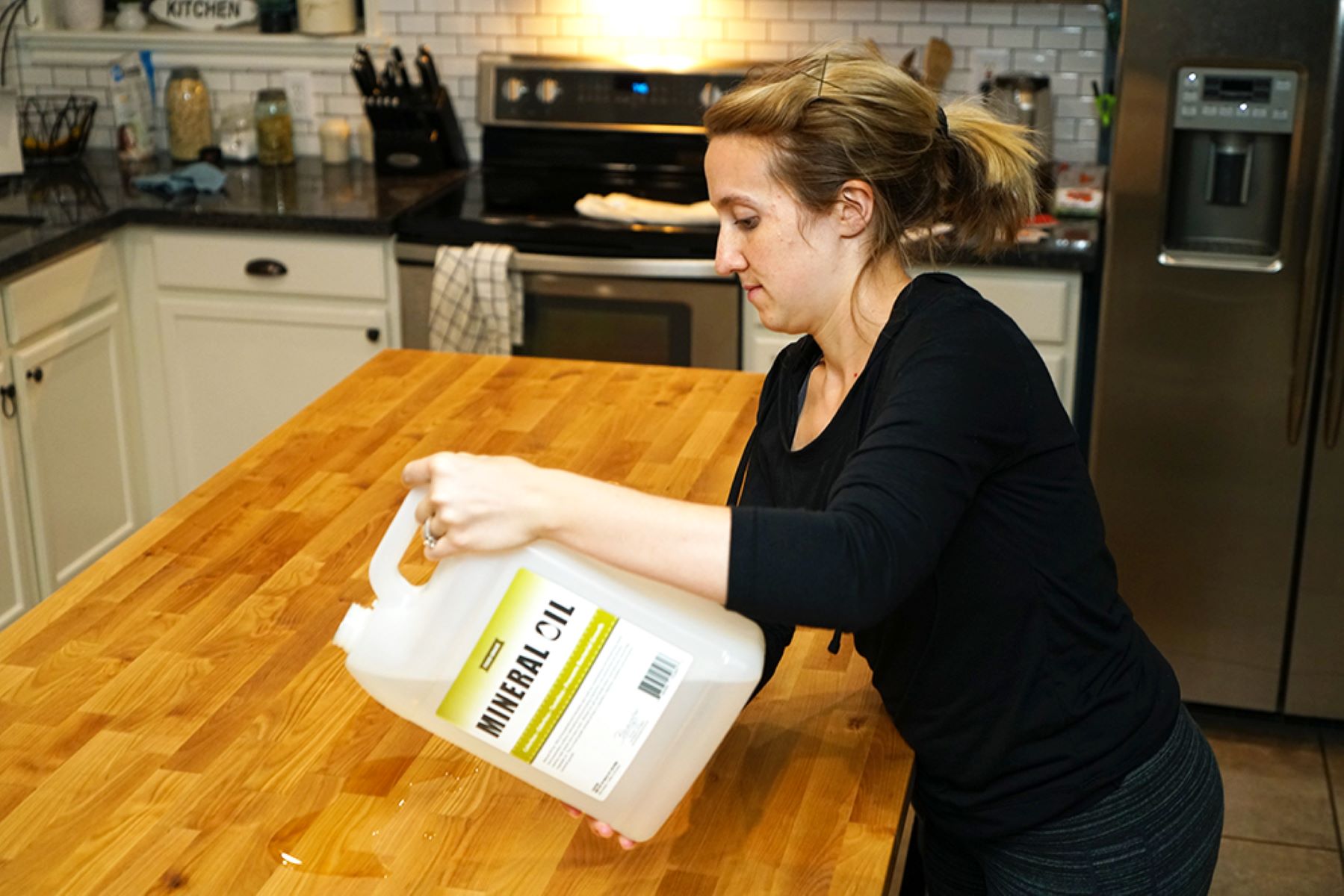

Articles
What Do I Use To Seal Butcher Block Countertops
Modified: December 7, 2023
Discover the best articles on how to seal butcher block countertops. Learn the techniques and products to use for a durable and beautiful finish.
(Many of the links in this article redirect to a specific reviewed product. Your purchase of these products through affiliate links helps to generate commission for Storables.com, at no extra cost. Learn more)
Introduction
Butcher block countertops are a beautiful and functional addition to any kitchen. Made from thick wood slabs, they provide a warm and natural aesthetic that adds charm and character to the space. However, to maintain the beauty and durability of butcher block countertops, proper sealing is essential.
Sealing butcher block countertops serves several important purposes. Firstly, it protects the wood from moisture and liquids, preventing them from seeping into the surface and causing warping or staining. Additionally, a good sealant helps to prevent bacteria and stains from penetrating the wood, making it easier to clean and maintain.
In this article, we will explore the various options available for sealing butcher block countertops and discuss their pros and cons. Whether you’re a homeowner considering a butcher block countertop or a professional looking for the best sealing method, this article will guide you through the process of finding the right sealer.
Key Takeaways:
- Properly sealing butcher block countertops is crucial for protecting against moisture, stains, and bacterial growth, while enhancing their longevity and preserving their natural beauty.
- When choosing a sealer for butcher block countertops, consider factors such as level of protection, aesthetic appeal, maintenance requirements, food safety, application process, and environmental impact to make an informed decision that aligns with your needs and values.
Read more: How To Do Butcher Block Countertops
Understanding Butcher Block Countertops
Butcher block countertops are made from individual wooden boards that are glued together to create a solid surface. The most common types of wood used for butcher block countertops include maple, oak, cherry, and walnut. These woods are chosen for their durability, strength, and resistance to scratches and dents.
One of the major benefits of butcher block countertops is their versatility. They provide a sturdy surface for chopping and food preparation, making them a popular choice for avid cooks and chefs. Additionally, their warm and natural appearance adds a touch of elegance to any kitchen, whether it’s modern, rustic, or traditional in style.
However, it’s important to note that butcher block countertops require regular maintenance to keep them in optimal condition. They are susceptible to damage from moisture, heat, and sharp utensils. Without proper sealing, the wood can absorb liquid, leading to stains, mold growth, and even warping.
Sealing butcher block countertops not only protects the wood but also enhances their longevity. A well-sealed countertop is resistant to moisture, stains, and bacteria, making it easier to clean and maintain. It also adds an extra layer of durability, prolonging the lifespan of the countertop.
Importance of Sealing Butcher Block Countertops
Sealing butcher block countertops is crucial for their long-term viability and aesthetic appeal. Here are some key reasons why sealing is important:
- Protection against moisture: Wood is highly susceptible to water damage. Without proper sealing, moisture can seep into the wood, causing it to expand, warp, or even develop mold and rot. Applying a sealant creates a barrier that prevents water penetration, thereby preserving the structural integrity of the countertop.
- Resistance to stains: Butcher block countertops encounter various spills and stains in the kitchen. Sealing the wood prevents substances like wine, oil, and food stains from penetrating the surface and leaving unsightly marks. A sealed countertop is easier to clean, as spills can be wiped away without seeping into the wood grain.
- Improvement in hygiene: A properly sealed countertop reduces the risk of bacterial growth. Wood is a porous material that can harbor bacteria and germs if left untreated. Sealing the wood creates a non-porous surface, making it more hygienic and easier to sanitize. This is especially important in a kitchen where food preparation and handling take place.
- Enhancement of longevity: By sealing butcher block countertops, you protect the wood from daily wear and tear. The sealant acts as a protective layer, reducing scratches, dents, and other damages that can occur with regular use. It helps preserve the beauty and natural color of the wood, ensuring its longevity for years to come.
- Preservation of appearance: Butcher block countertops are known for their warm and inviting look. With time, however, exposure to light and UV rays can cause the wood to fade and lose its original charm. Sealing the countertop helps to retain its natural color and luster, keeping it looking fresh and beautiful.
Considering the investment and the central role that countertops play in the kitchen, it’s essential to prioritize sealing as part of regular maintenance. By doing so, you will ensure the durability, cleanliness, and aesthetics of your butcher block countertops for years to come.
Common Sealing Options for Butcher Block Countertops
There are various sealing options available for butcher block countertops, each with its own advantages and considerations. Here are some of the most common sealants used:
- Mineral Oil: Mineral oil is a popular choice for sealing butcher block countertops. It is a food-safe and non-toxic option that penetrates the wood, enhancing its natural beauty. Mineral oil helps to moisturize and protect the wood from drying out, preventing cracks and splits. However, it needs to be reapplied regularly, as it wears off over time with use and cleaning.
- Beeswax: Beeswax is another natural option for sealing butcher block countertops. It provides a protective layer on the surface, preventing water absorption and giving the wood a subtle sheen. Beeswax is also food-safe and can be reapplied as needed. However, it may require more frequent application compared to other sealants.
- Tung Oil: Tung oil is a popular choice for its durability and water-resistant properties. It creates a hard and glossy finish, enhancing the natural color and grain of the wood. Tung oil is more resistant to water and spills compared to mineral oil and beeswax. However, it requires multiple coats and proper curing time to achieve optimal results.
- Linseed Oil: Linseed oil is derived from flaxseed and is known for its penetrating properties. It helps to seal the wood and prevent moisture absorption. Linseed oil provides a warm and amber finish, enhancing the natural beauty of the wood. However, it can take longer to dry compared to other sealants, and proper ventilation is required during the drying process due to its strong odor.
- Polyurethane: Polyurethane is a synthetic sealant that offers excellent durability and water resistance. It forms a protective layer on the surface of the wood, providing enhanced durability against scratches and stains. Polyurethane provides a glossy finish and requires fewer reapplications compared to natural sealants. However, it is not food-safe and should only be used on countertops that will not be used for food preparation.
When choosing a sealing option for your butcher block countertop, consider factors such as your preferences, the level of maintenance you are willing to undertake, and the intended use of the countertop. It’s essential to follow the manufacturer’s instructions and consult with professionals if needed to ensure the proper application and longevity of the sealant.
Mineral Oil
Mineral oil is one of the most commonly used and recommended sealants for butcher block countertops. It is a food-safe and non-toxic option that provides numerous benefits for maintaining and protecting the wood. Here are some key characteristics and considerations when using mineral oil as a sealing option:
Penetration and Moisturization: Mineral oil has excellent penetration capabilities, allowing it to deeply moisturize the wood fibers. This helps to prevent the wood from drying out, which can lead to cracks, splits, and other forms of damage. By keeping the wood well-hydrated, mineral oil helps to maintain the structural integrity and longevity of the butcher block countertop.
Natural Aesthetic Enhancement: When applied to the surface, mineral oil enhances the natural beauty of the wood, enriching its color and grain. This can bring out the depth and warmth of the wood, making the countertop visually appealing and adding character to the kitchen space.
Ease of Application: Applying mineral oil to a butcher block countertop is a straightforward process. It is typically recommended to heat the mineral oil first, as warm oil is more easily absorbed by the wood. Using a clean cloth or a brush, generously apply the oil to the entire surface of the countertop and allow it to penetrate. Repeat the process until the wood stops absorbing the oil.
Regular Maintenance: One drawback of using mineral oil as a sealant is that it does require regular maintenance. Due to its liquid nature, mineral oil can evaporate and wear off over time, especially with repeated cleaning and use of the countertop. Consequently, it is recommended to reapply mineral oil every few months or as needed to maintain an effective seal.
Non-Toxic and Food-Safe: An important advantage of using mineral oil for butcher block countertops is that it is considered food-safe and non-toxic. This means that it is safe for direct contact with food and will not pose any health hazards when used in the kitchen.
It is worth noting that mineral oil does not offer the same level of water resistance as other sealants. Therefore, it is important to wipe away spills and excess moisture promptly to prevent any potential damage to the wood surface. Additionally, if you have any specific allergies or sensitivities, it is advisable to test the mineral oil on a small, inconspicuous area before applying it to the entire countertop.
Overall, mineral oil is a reliable and widely-used choice for sealing butcher block countertops. Its natural properties, ease of application, and food-safe nature make it a popular option for homeowners and professionals alike. Regular maintenance and reapplication are necessary to ensure ongoing protection and preservation of the wood.
Read more: What Oil To Use On Butcher Block Countertops
Beeswax
Beeswax is a natural and versatile option for sealing butcher block countertops. Derived from the wax of honeybees, it offers several benefits and considerations to keep in mind when considering it as a sealant:
Water Repellent: Beeswax provides a protective barrier on the surface of the wood, preventing water and other liquids from seeping into the countertop. This water-repellent property helps to minimize the risk of water damage, warping, and staining, keeping the butcher block countertop in optimal condition.
Enhanced Appearance: When applied to the wood, beeswax gives it a subtle sheen and improves its aesthetics. The natural warmth and beauty of the wood are brought out, enhancing the overall visual appeal of the countertop. Beeswax can deepen the color and highlight the grain, creating an attractive and inviting look in the kitchen.
Ease of Application: Applying beeswax to the countertop is a simple and straightforward process. Begin by cleaning the surface thoroughly and allowing it to dry completely. Rub the beeswax onto the wood using a clean cloth, rubbing it in circular motions to ensure even coverage. Allow the wax to sit for a few minutes, and then buff the surface using a clean cloth to achieve a smooth and polished finish.
Regular Maintenance: While beeswax provides a protective layer, it does require regular maintenance and reapplication. Over time, the beeswax can wear off with cleaning and use, so it is recommended to monitor the countertop’s appearance and reapply as needed. This regular maintenance will help to maintain the water-repellent properties and keep the wood looking its best.
Food-Safe and Non-Toxic: Beeswax is considered safe for use in the kitchen as it is non-toxic and food-safe. It does not release any harmful chemicals or fumes, making it suitable for direct contact with food during meal preparation.
One point to consider is that beeswax may need more frequent reapplication compared to other sealants. Its protective layer can wear off faster, especially in high-use areas of the countertop. However, the ease of application and the natural properties of beeswax make it a preferred choice for those who prefer a more organic and environmentally friendly sealing option.
Overall, beeswax offers a natural and effective way to seal butcher block countertops. Its water-repellent properties, enhanced appearance, and food-safe nature make it a popular choice among homeowners looking to protect and maintain the beauty of their butcher block countertops. With regular maintenance and reapplication, beeswax can provide long-lasting protection and keep the wood looking its best for years to come.
Use food-safe mineral oil or beeswax to seal butcher block countertops. Apply multiple coats, allowing each to fully absorb before adding the next. Reapply every few months to maintain protection.
Tung Oil
Tung oil is a popular choice for sealing butcher block countertops due to its excellent durability and water-resistant properties. Here are some key points to consider when using tung oil as a sealant:
Durability and Water Resistance: Tung oil is known for its exceptional durability and ability to resist water. When applied to the wood surface, it forms a hard and protective layer that helps to shield the countertop from moisture, stains, and other forms of damage. This makes tung oil an excellent option for busy kitchens where spills and water exposure are common.
Enhanced Natural Beauty: Tung oil enhances the natural beauty of the wood, bringing out its color and grain. It provides a rich and deep finish, giving the butcher block countertop an attractive and lustrous appearance. The oil penetrates into the wood, creating a long-lasting protection that does not sit on the surface like some other sealants.
Multiple Coats and Curing Time: To achieve optimal results with tung oil, it is typically recommended to apply multiple coats. Each coat should be allowed to fully dry and cure before applying the next. This curing process can take several days or even weeks, depending on the specific brand and environmental conditions. It is important to follow the manufacturer’s instructions regarding the number of coats and curing time to attain the desired level of protection.
Application Process: When applying tung oil, it is recommended to use a clean cloth or brush to evenly distribute the oil onto the wood surface. Allow the oil to penetrate for a few minutes, and then wipe off any excess using a clean cloth. Repeat this process with each coat, making sure to follow the manufacturer’s guidelines. Proper ventilation is necessary during the application and drying process due to the strong odor of tung oil.
Long-Lasting Protection: Tung oil forms a hard and durable finish on butcher block countertops. This means that the protective layer does not require frequent reapplication like some other sealants. With proper care and maintenance, a tung oil-sealed countertop can maintain its beauty and protection for an extended period.
It is important to note that tung oil may slightly darken the color of the wood. Therefore, it is advisable to test the oil on an inconspicuous area or a sample piece of the wood beforehand to ensure that the desired color result is achieved. Additionally, tung oil is not recommended for countertops that will be used for cutting or food preparation, as it is not considered food-safe.
Overall, tung oil is a popular choice for sealing butcher block countertops due to its durability, water resistance, and ability to enhance the natural beauty of the wood. With proper application and maintenance, a tung oil-sealed countertop can provide long-lasting protection and a stunning finish.
Linseed Oil
Linseed oil, derived from the seeds of the flax plant, is a natural option for sealing butcher block countertops. It offers several benefits and considerations to keep in mind when considering it as a sealant:
Penetrating Properties: Linseed oil has excellent penetrating properties, allowing it to deeply saturate the wood fibers. This helps to seal the wood and create a protective barrier against moisture, reducing the risk of warping, cracking, and other forms of damage. The oil also enhances the natural beauty of the wood, highlighting its grain and color.
Warm and Amber Finish: When applied to the wood, linseed oil provides a warm and amber finish, enhancing the natural characteristics of the butcher block countertop. This creates a visually appealing and inviting look in the kitchen, adding a touch of rustic charm and elegance.
Curing Time and Ventilation: Linseed oil typically requires a longer drying and curing time compared to other sealants. This can range from a few days to a few weeks, depending on factors such as humidity and temperature. During the curing process, proper ventilation is necessary due to the strong odor of linseed oil. It is essential to follow the manufacturer’s instructions regarding the drying and curing time for optimal results.
Regular Maintenance and Reapplication: Linseed oil may require more regular maintenance and reapplication compared to some other sealants. The oil can wear off over time, especially in high-use areas of the countertop. Regularly monitoring the appearance of the countertop and reapplying linseed oil as needed will ensure ongoing protection and maintain the attractive finish.
Airing Out and Odor: It is important to note that linseed oil has a strong odor during the drying process. Proper ventilation is crucial to allow the odor to dissipate. After application, it is advisable to allow the countertop to air out in a well-ventilated area until the odor subsides.
Not Food-Safe: Linseed oil is not considered food-safe and should not be used on butcher block countertops that will be used for food preparation. It is important to choose alternative sealants that are explicitly labeled as food-safe for countertops in kitchen spaces where direct contact with food is expected.
When considering linseed oil as a sealing option for your butcher block countertop, it is essential to weigh the pros and cons based on your specific needs and preferences. Linseed oil offers a natural and visually appealing option for sealing wood, but it requires proper curing time, ventilation, and regular maintenance to ensure optimal results.
Consulting with professionals or experts in the field can provide further guidance on the suitability of linseed oil for your specific countertop and kitchen environment.
Polyurethane
Polyurethane is a synthetic sealant that offers excellent durability and protection for butcher block countertops. Here are some important points to consider when using polyurethane as a sealant:
Superior Durability: Polyurethane provides a highly durable and long-lasting finish for butcher block countertops. It creates a protective layer that is resistant to scratches, stains, and water damage. This makes polyurethane an ideal choice for high-traffic kitchens or areas where the countertop will be subjected to heavy use.
Easy Maintenance: One of the main advantages of polyurethane is its low-maintenance nature. The sealed surface is relatively easy to clean and maintain. Spills can be wiped away with a damp cloth without worry of the liquid penetrating the wood. This makes polyurethane-sealed countertops suitable for households with busy kitchens.
Choice of Finishes: Polyurethane comes in a variety of finishes including satin, semi-gloss, and high-gloss. This allows you to choose the level of sheen that suits your aesthetic preferences and complements the overall design of your kitchen. Whether you prefer a subtle and smooth finish or a more lustrous and glossy appearance, polyurethane offers versatility in achieving your desired look.
Longer Application Process: Applying polyurethane to a butcher block countertop is a more involved process compared to some other sealants. Multiple coats are typically required, with proper drying time between each layer. Light sanding may be necessary between coats to achieve a smooth and even finish. It is important to follow the manufacturer’s instructions and guidelines for the best results.
Not Food-Safe: It is essential to note that polyurethane is not considered food-safe. It should only be used on areas of the countertop that will not come into direct contact with food or be used for food preparation. If you have areas of the butcher block countertop that will be used for cutting or food handling, it is recommended to choose a food-safe sealant for those specific areas.
While polyurethane offers excellent durability and ease of maintenance, some individuals may prefer a more natural and organic option for sealing their butcher block countertops. It is important to consider personal preferences, the intended use of the countertop, and whether a synthetic sealant aligns with your values and priorities.
Seeking professional guidance and advice in selecting the right sealant for your specific needs can be beneficial. They can provide insights into the best sealant options based on the type of wood, the desired long-term appearance, and the expected usage of the countertop.
Factors to Consider when Choosing the Right Sealer for Butcher Block Countertops
When choosing a sealer for your butcher block countertops, it is important to consider several factors to ensure you select the right one that meets your needs and preferences. Here are some key factors to consider:
- Level of Protection: Assess the level of protection you need for your countertops. Consider the potential exposure to water, heat, stains, and scratches in your kitchen. Some sealants offer better water resistance and durability than others, so choose a sealer that provides the appropriate level of protection for your countertop’s use.
- Aesthetic Appeal: Think about the look and style you want to achieve with your butcher block countertops. Different sealers have different effects on the appearance of the wood. Some may enhance the natural color and grain, while others may darken or give a glossier finish. Consider which sealer will best complement or enhance the design aesthetic of your kitchen.
- Maintenance Requirements: Consider the amount of time and effort you are willing to invest in the maintenance of your countertops. Some sealers require regular reapplication or periodic touch-ups, while others offer longer-lasting protection. Think about your lifestyle and how much maintenance you are willing to undertake.
- Food Safety: If you plan to use the butcher block countertops for food preparation, ensure that the sealer you choose is food-safe and non-toxic. Certain sealers, such as mineral oil and beeswax, are considered food-safe and are suitable for direct contact with food. On the other hand, synthetic sealers like polyurethane are not food-safe and should be used only on non-food contact areas.
- Application Process: Consider the complexity and time required for the application process. Some sealers require multiple coats and drying time between each coat, while others may be more straightforward to apply. Moreover, certain sealers may have strong odors during the application and curing process, requiring proper ventilation.
- Environmental Impact: If you are environmentally conscious, consider the environmental impact of the sealer you choose. Natural sealers like beeswax and linseed oil are more eco-friendly compared to synthetic sealers. Look for sealants that are made from renewable resources and have minimal impact on the environment.
By considering these factors, you can make an informed decision and choose the most suitable sealer for your butcher block countertops. It is recommended to research different sealers, read product labels and instructions, and consult with professionals if needed to ensure you select the best option that aligns with your needs, preferences, and values.
Conclusion
Choosing the right sealer for your butcher block countertops is crucial for their longevity, performance, and overall aesthetic appeal. By understanding the different sealing options available and considering various factors, you can make an informed decision that meets your specific needs and preferences.
Mineral oil, beeswax, tung oil, linseed oil, and polyurethane are common sealants for butcher block countertops, each offering their unique advantages and considerations. Mineral oil and beeswax are natural options that enhance the wood’s beauty and require regular maintenance. Tung oil provides excellent durability and water resistance, while linseed oil offers a warm and amber finish. Polyurethane, a synthetic sealant, offers superior durability and easy maintenance.
In choosing the right sealer, consider factors such as the level of protection, aesthetic appeal, maintenance requirements, food safety, application process, and the environmental impact of the sealant. Assess your specific needs, the expected usage of the countertop, and your preferences to find the best fit.
Remember to follow the manufacturer’s instructions for application and maintenance, ensuring proper ventilation and curing time. Regular maintenance and reapplication, when necessary, will help preserve the beauty and performance of your butcher block countertop over time.
Seeking professional advice and guidance can be beneficial, especially if you’re unsure about the best sealer option for your specific countertop and kitchen environment.
In conclusion, by choosing the right sealer and properly maintaining your butcher block countertops, you can enjoy their beauty, durability, and functionality for years to come. So, take the time to understand the available options, consider the factors that matter to you, and make an informed decision to protect and enhance your butcher block countertops.
Frequently Asked Questions about What Do I Use To Seal Butcher Block Countertops
Was this page helpful?
At Storables.com, we guarantee accurate and reliable information. Our content, validated by Expert Board Contributors, is crafted following stringent Editorial Policies. We're committed to providing you with well-researched, expert-backed insights for all your informational needs.
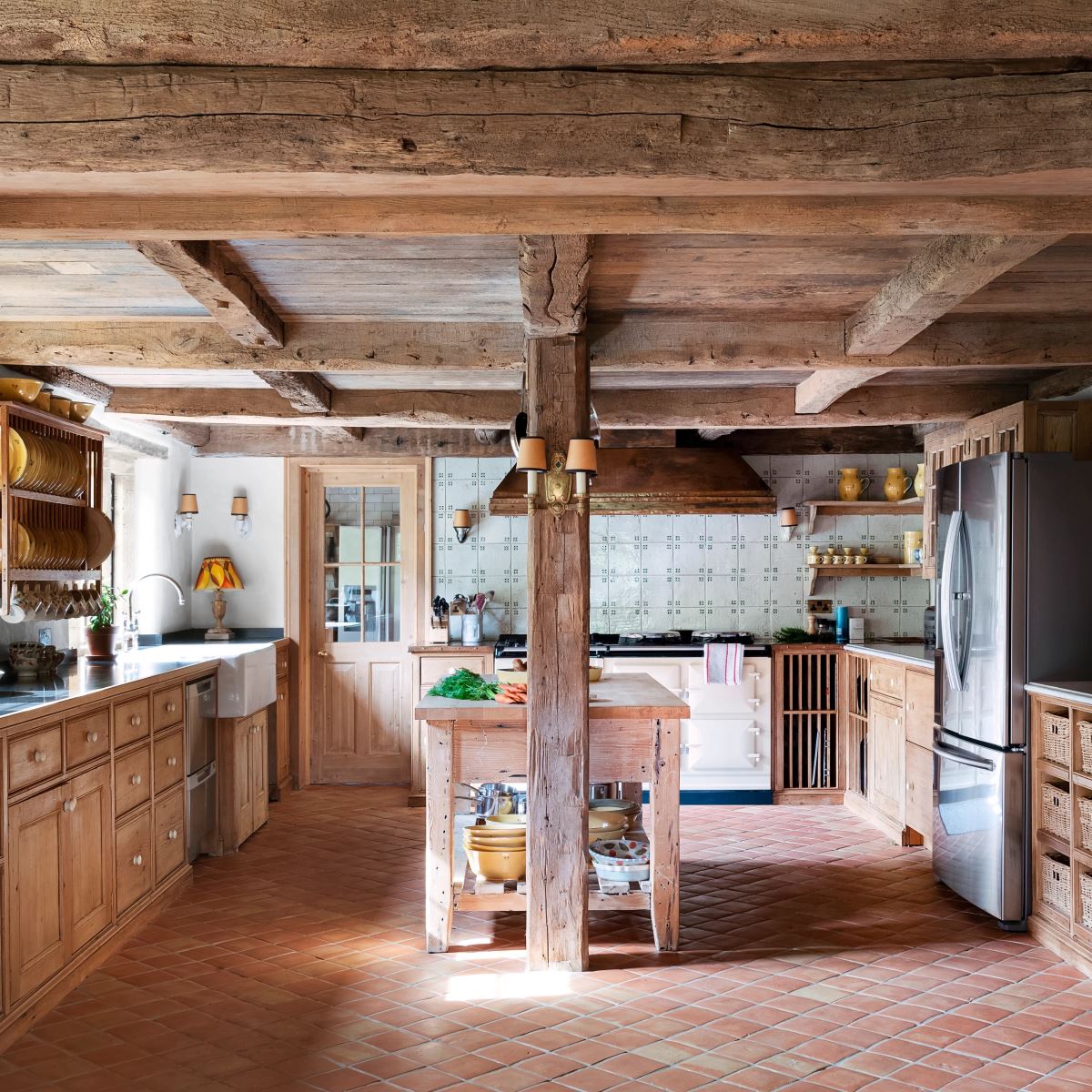
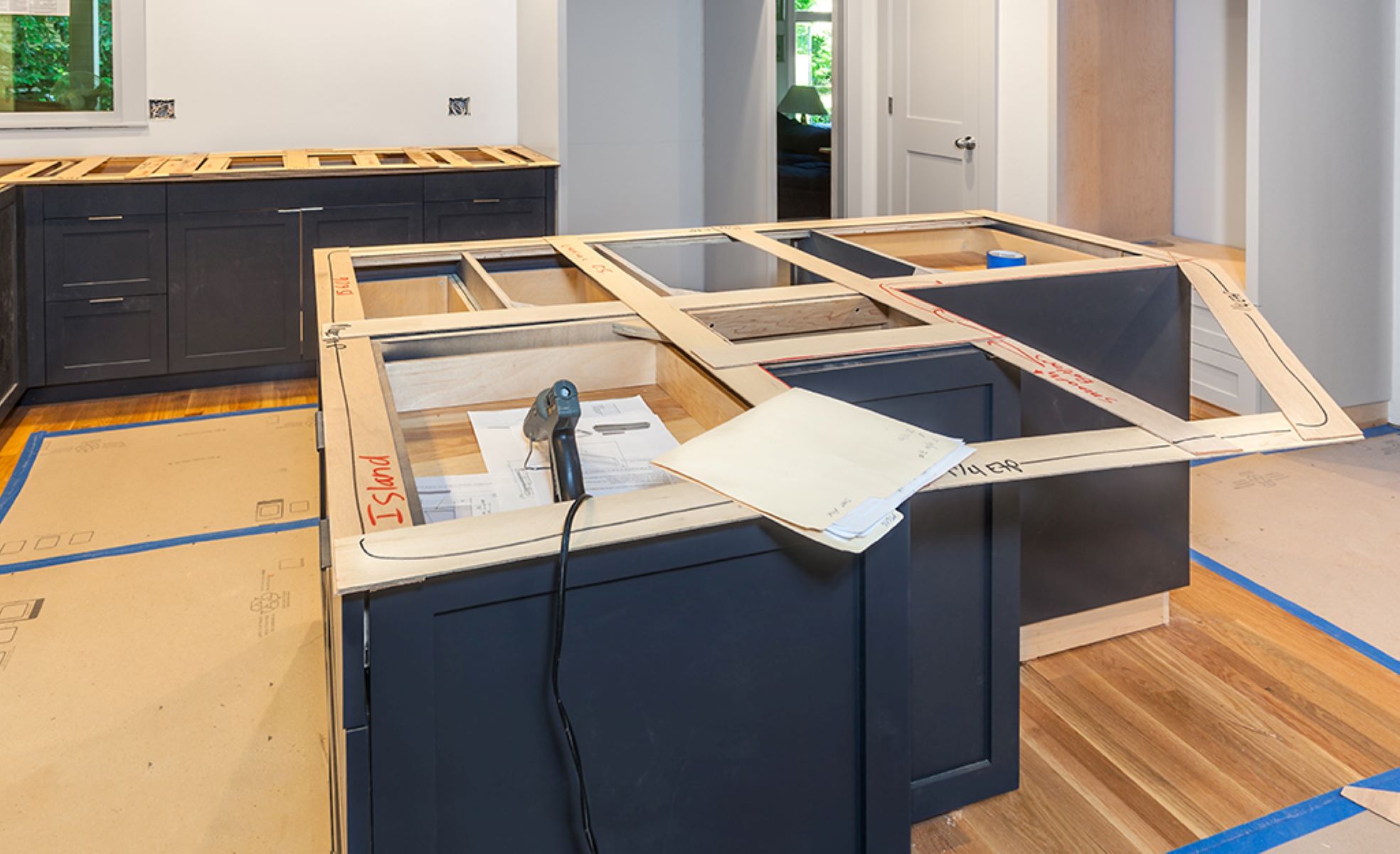
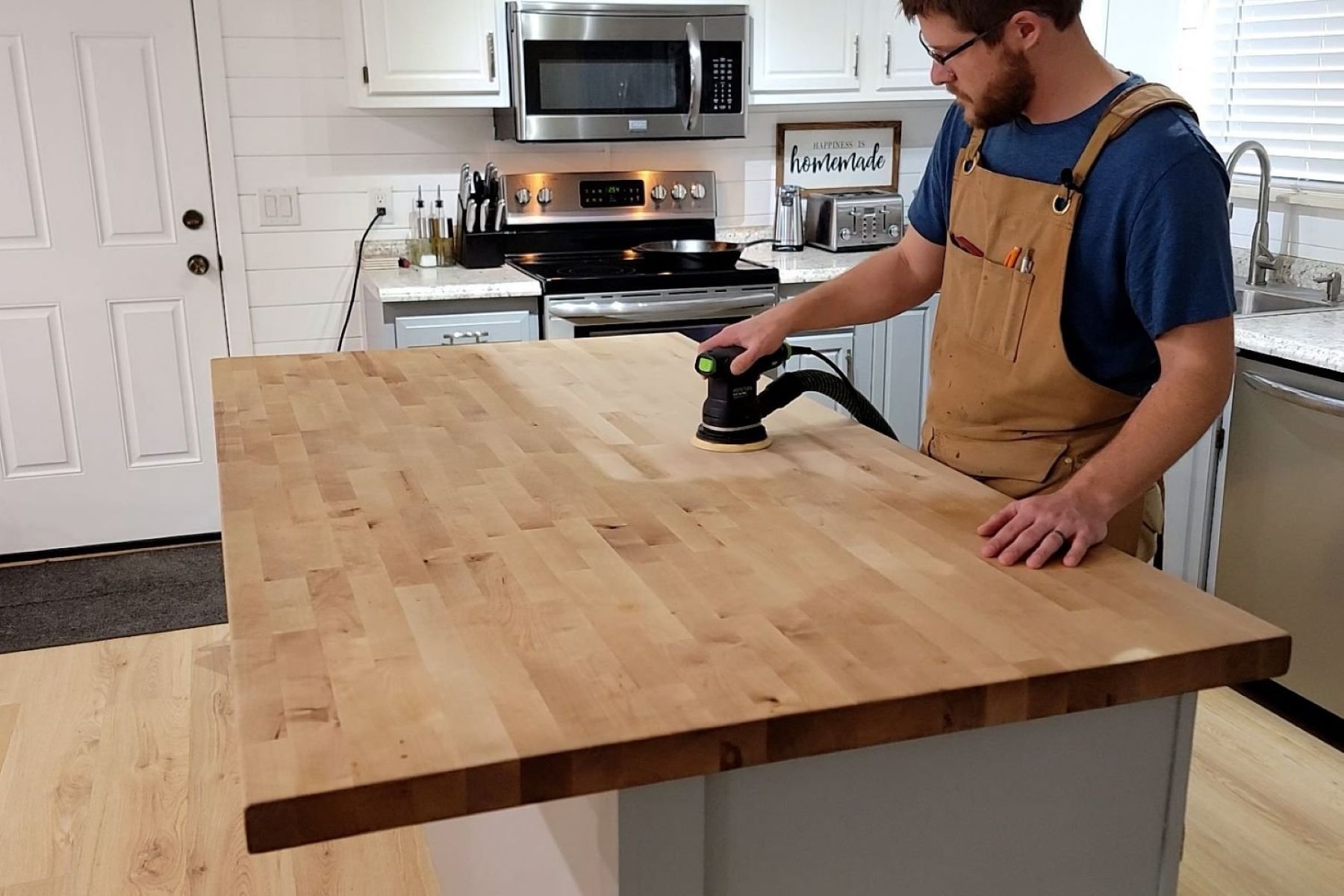
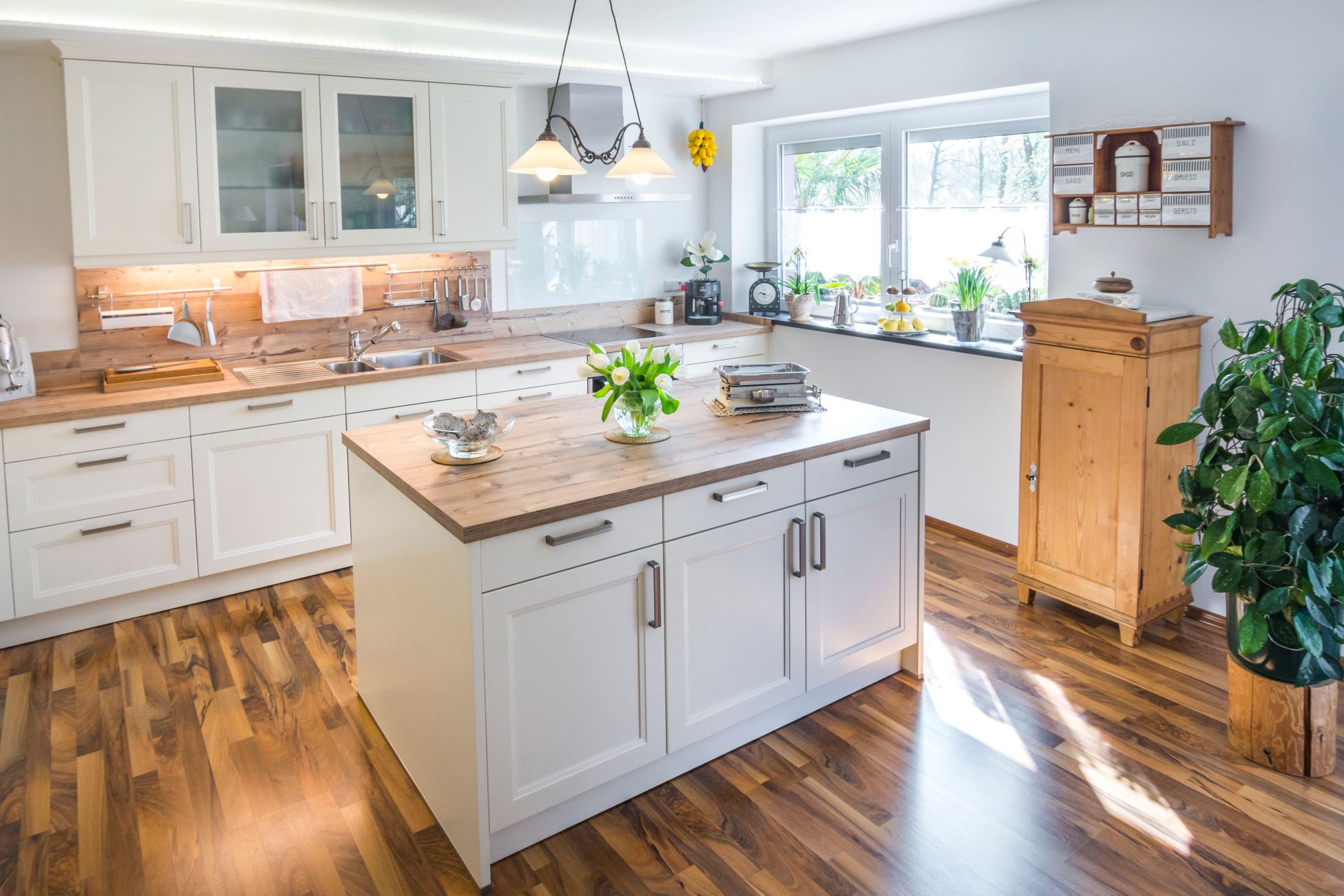
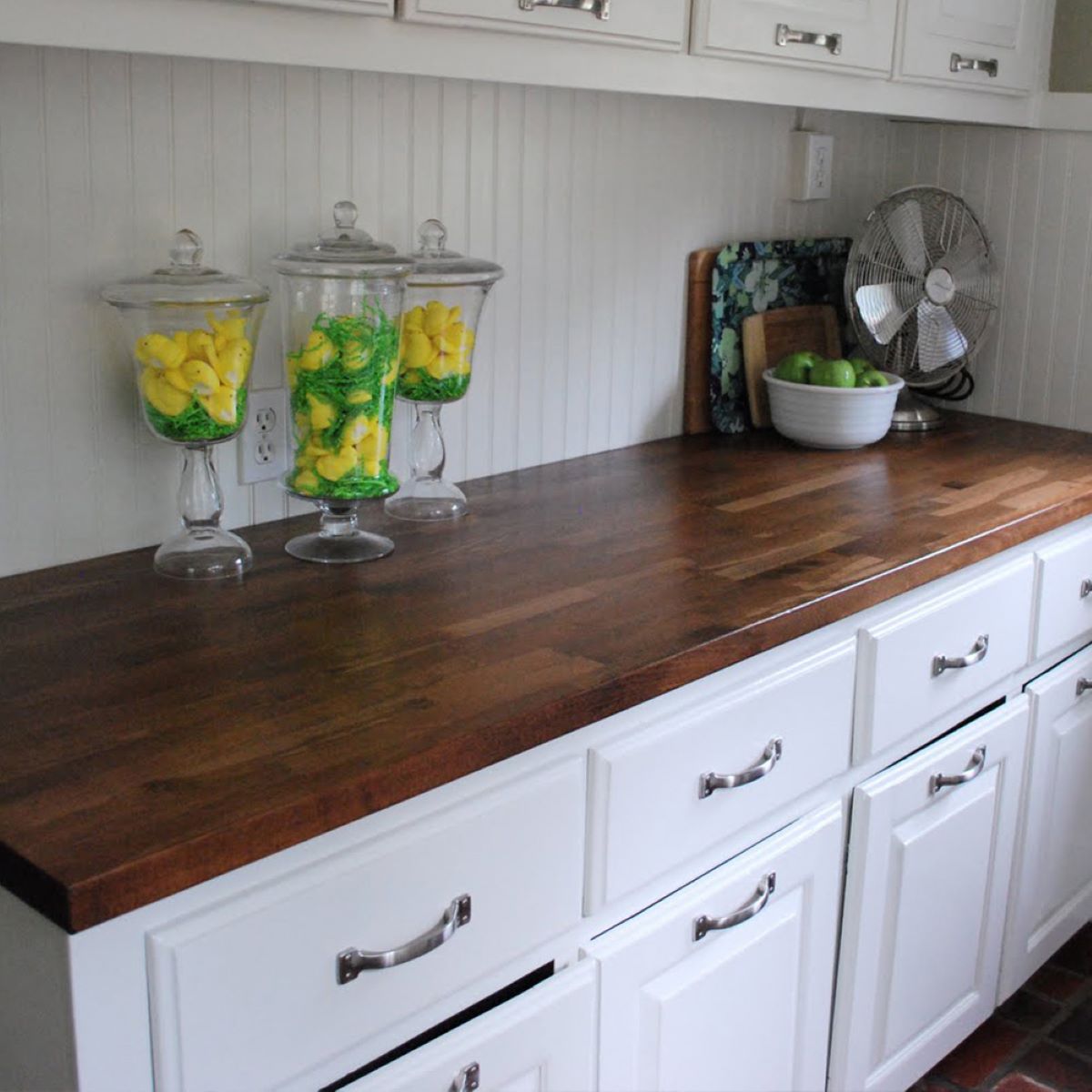
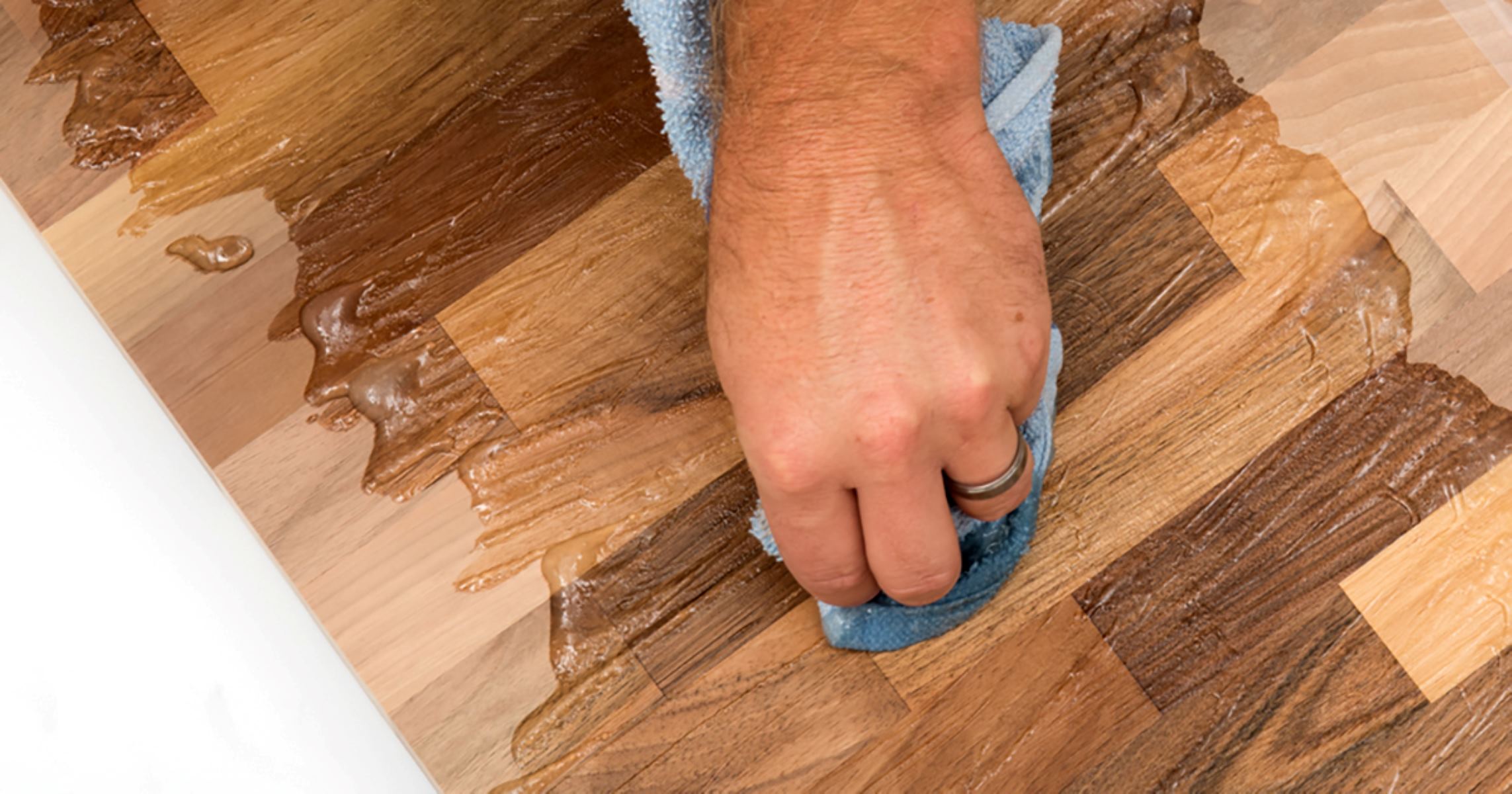
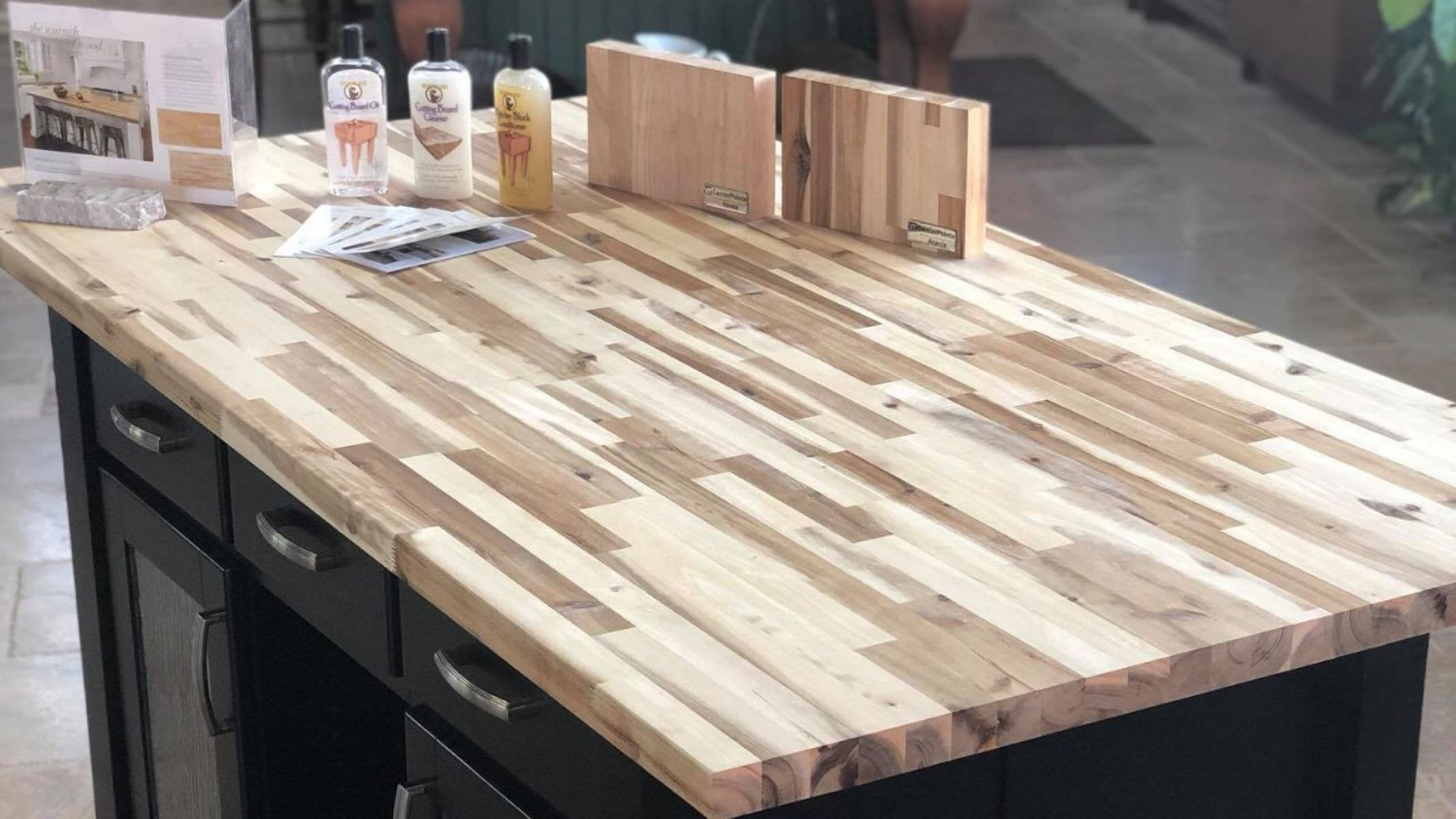
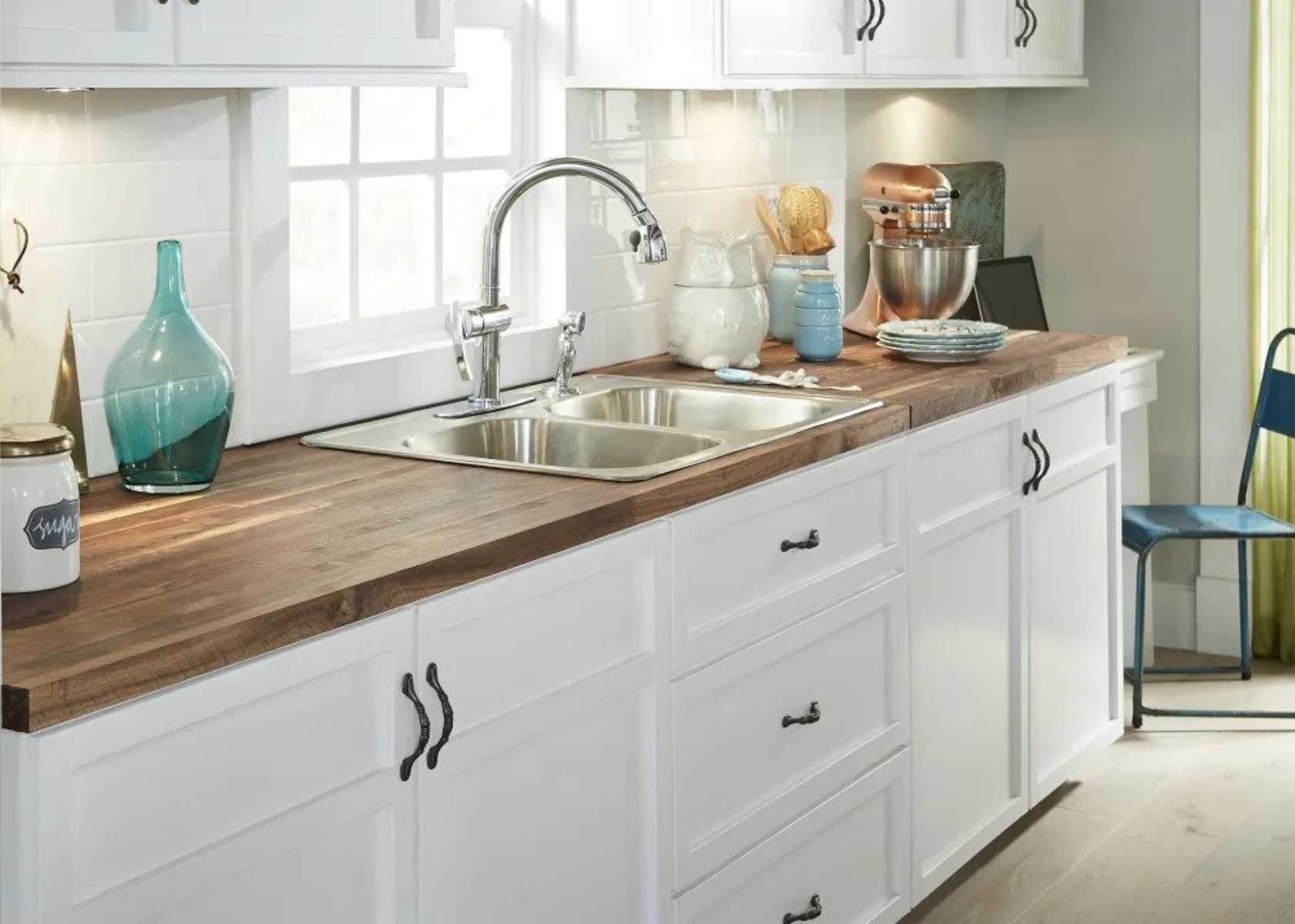

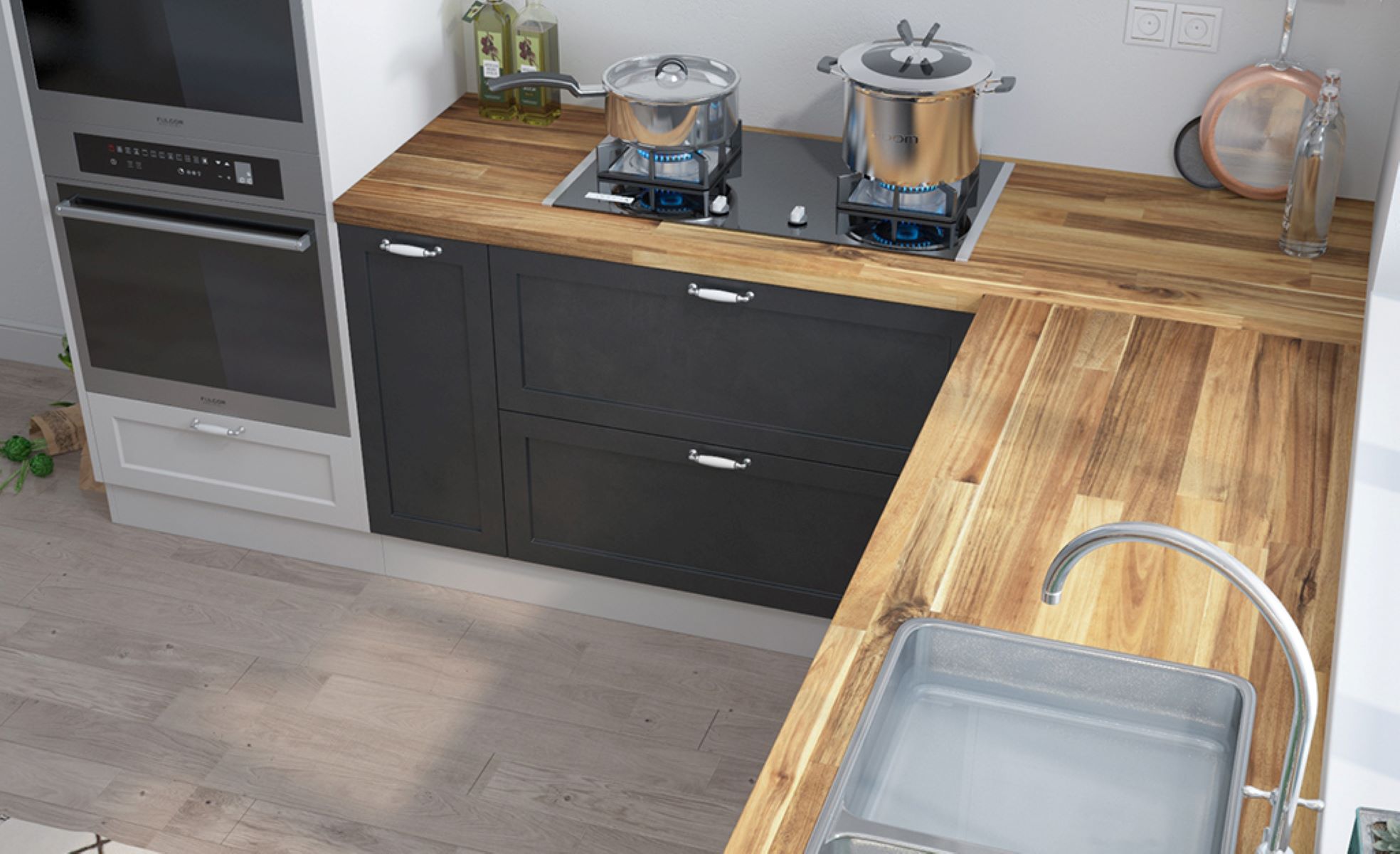
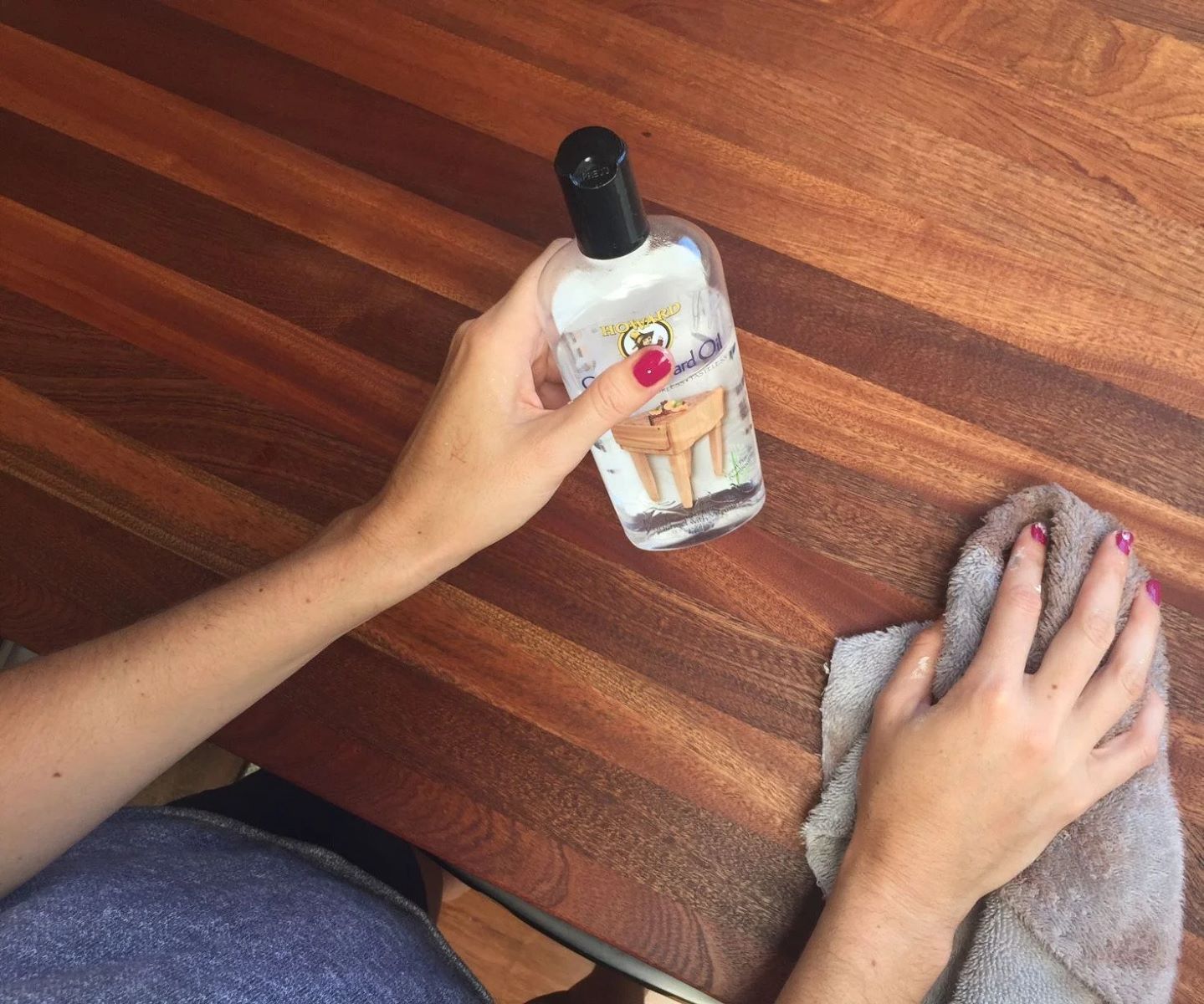
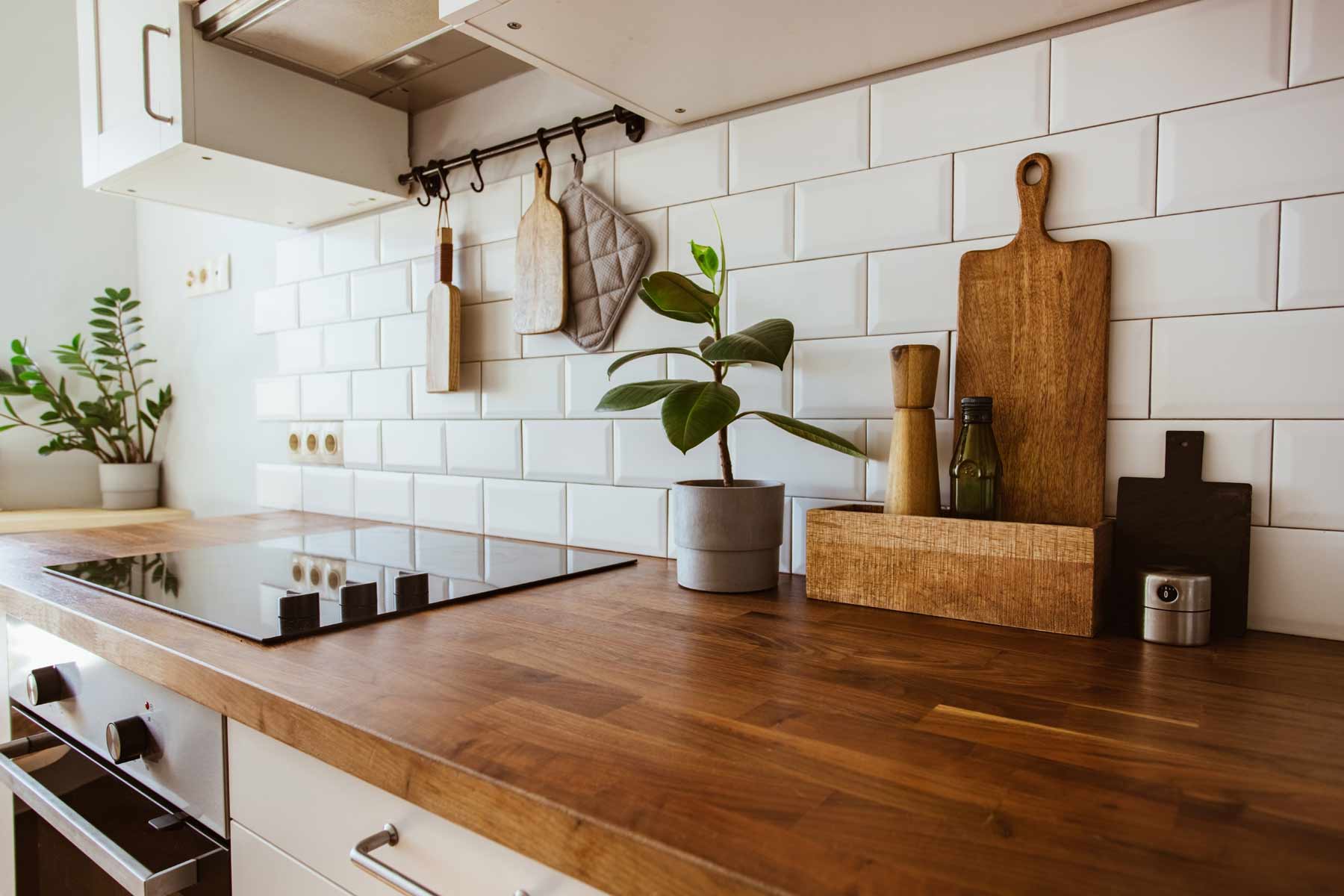
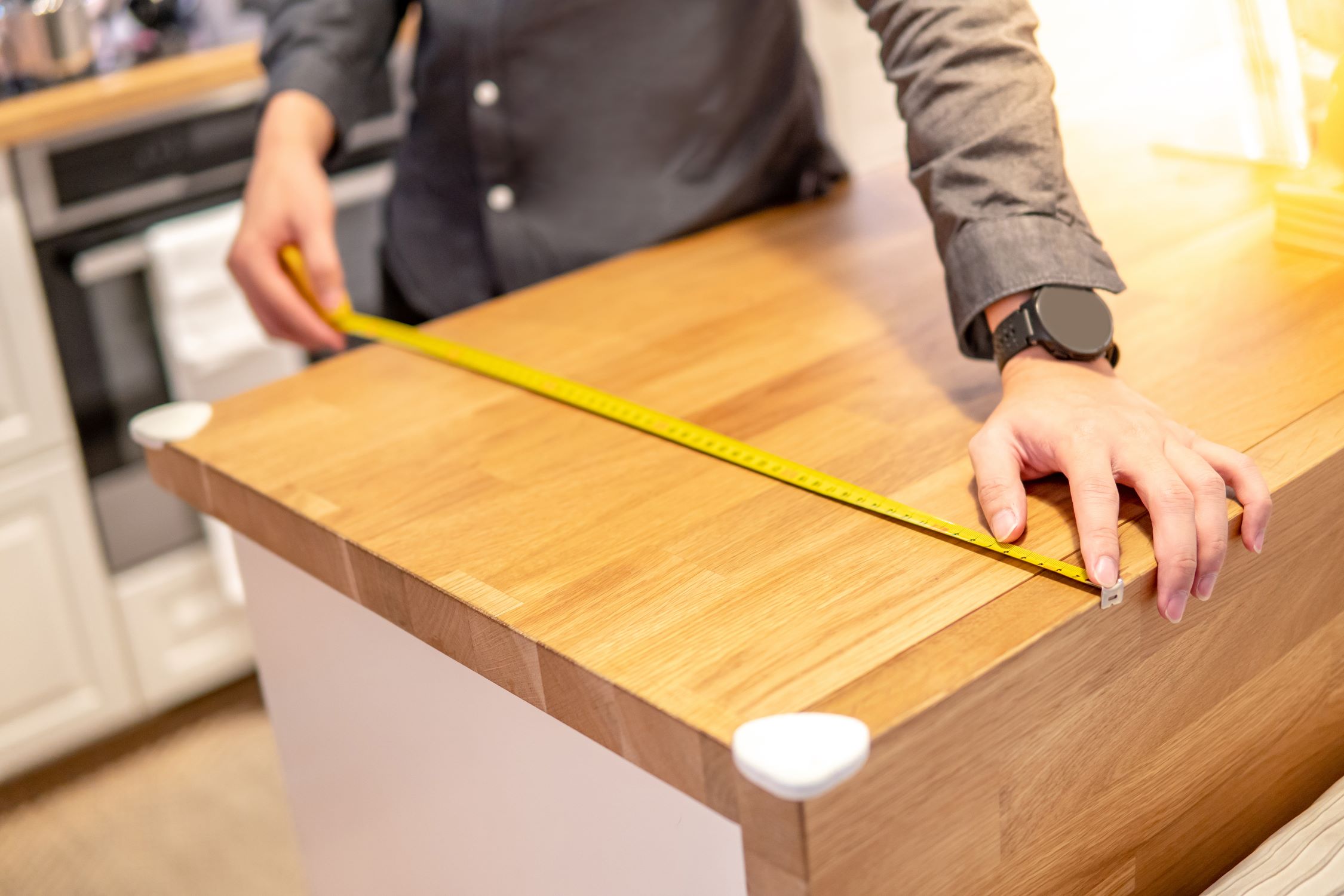

0 thoughts on “What Do I Use To Seal Butcher Block Countertops”